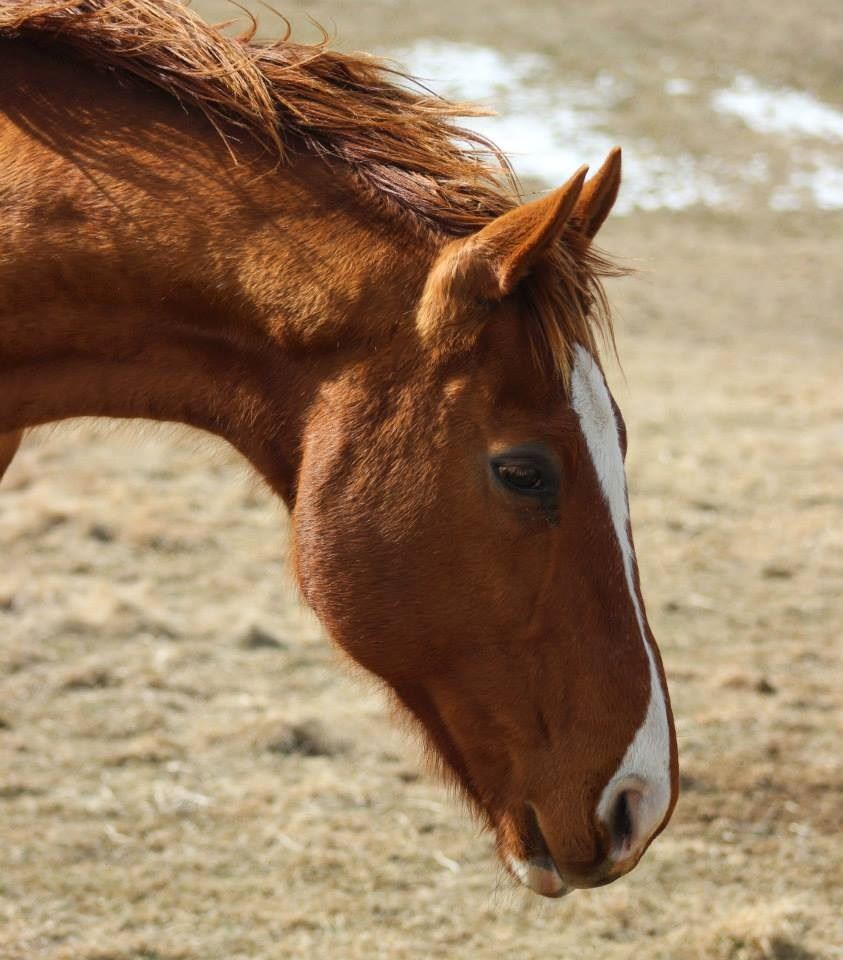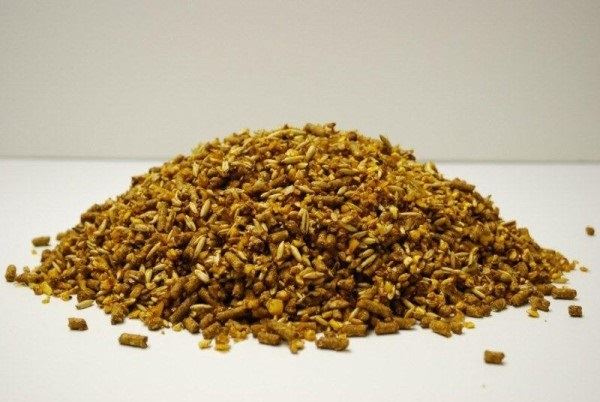By Jen Roytz
As the temperatures dip down around freezing or below, it can be difficult to keep weight on our horses, especially those who are up in age or known for staying on the lean side. At least every two weeks, it is advised that you asses a horse’s BCS (Body Condition Score) and weight, using a weight tape or scale. Based on the nuanced changes you see in your horse’s weight and BCS, there are simple adjustments you can make to manage their weight.

Staying Warm
One of the easiest things you can do to help your horses maintain weight is to help them stay warm during the winter, as the colder they are, the more calories they will burn trying to keep their body warm. If they aren’t in regular work, the best option is to let their body do what it does naturally and grown a thick winter coat, which provides plenty of insulation to keep them warm. If they are outside most or all of the time, making sure they have some type of shelter to avoid harsh wind and freezing rain is key.
If they are in work and you are keeping their coat thinner or clipped. Note that the blanket is smoothing the coat down, thus taking away much of its heat-retaining properties, so changing blanket weight or layers as temperatures warm or cool is necessary to maintain the horse’s comfort. Also, be sure to inspect the horse without a blanket on regularly to make sure it is maintaining weight and isn’t developing any skin irritations or rubs.
Regardless of whether the horse is indoors or outdoors, be sure their access to water is not compromised (frozen) and that they are drinking enough, as a reduced water intake can lead to decreased food intake and gastrointestinal issues.
Feeding
Horses don’t have ample grass to graze upon in the winter, so owners must be sure they provide enough forage for their horses – about 1.25 to 2% of forage per day. While increasing the amount of forage offered is important during winter months, increasing the quality is also paramount, especially for individuals who are proven hard keepers.
“Select less mature grass hay that contains more leaves than stems and include a legume forage, such as alfalfa, clover, or lespedeza that can provide more calories than typical grass hays on an equal weight basis,” said Catherine Whitehouse, MS, Nutrition Advisor for Kentucky Equine Research. “Offering poor-quality hay – those high in indigestible fiber – can limit the amount horses will consume, which can be a factor in weight loss, even if they have access to forage such as a round bale.”

If forage quality is an issue, Whitehouse suggest providing an alternative forage product, such as beet pulp, forage cubes, pellets, or chaff, which are high in fermentable fiber.
“If the horse is receiving grain, it may be as simple as increasing the amount offered by two to three pounds per day,” added Whitehouse.
Adding a top dressing to a horse’s feed, such as stabilized rice bran or vegetable oil, offers highly digestible energy and calories, which will help horses maintain body heat and weight.
Hard Keepers
When it comes to senior horses or those who are known to be hard keepers, being proactive can help them immensely as temperatures drop.
“Horses that repeatedly lose body weight during the winter should have their BCS assessed in the fall and, if needed, be started on a weight-gain diet with a larger amount of calories prior to the start of winter,” said Whitehouse. “Consider reducing their workload during the winter, if possible, to allow more calories to be used for maintaining weight and condition.”
She also suggests using a fixed formula concentrate with fixed ingredients that uses a combination of energy sources, such as starch, fat and fermentable fiber, which should help maintain weight.
If you have questions about how to help your horses maintain a healthy weight through the winter, KER nutrition advisors are available for consultation via email or phone. Go to www.ker.com for more information.
